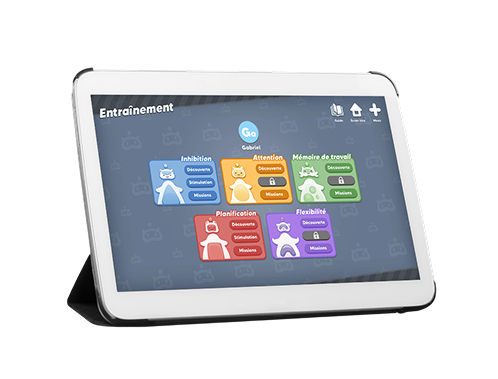All you need to know about the Speech Therapist
When is it time to consult a Speech Therapist?Speech Therapy explained for parents
The signs I notice in my child
Some signs I notice in my child might lead me to talk to my doctor about the value of a speech and language assessment:
- They have difficulty chewing, swallowing, or eating certain foods.
- They struggle to clearly express their thoughts or emotions.
- A teacher or healthcare professional (like a pediatrician) has concerns about their communication or understanding.
- They mispronounce certain sounds or words.
- They have trouble with reading, writing, or speaking at school.
- Their language is developing more slowly than that of other children their age.
The role of the Speech Therapist
Also known as a “logopède” in Belgium or a “logopédiste” in Switzerland, the speech and language therapist is a healthcare professional specialized in the prevention, assessment, and treatment of communication disorders, oral and written language, voice, speech, swallowing, and associated cognitive functions. They support children who have difficulties expressing themselves, understanding, reading, writing, or eating, by offering personalized interventions tailored to each situation.
Goals of sessions with a Speech Therapist
Speech and language therapy sessions aim to:
- Raise awareness and support the family in order to help the child’s development.
- Develop and improve oral and written language skills to facilitate communication and academic learning.
- Improve swallowing and feeding abilities in cases of oromotor disorders.
- Boost the child’s self-confidence by helping them express themselves and interact with others more effectively.
- Implement compensatory strategies to overcome persistent difficulties.
🎯 Goal: Strengthen fragile or impaired skills while maintaining self-confidence and self-esteem.
Areas of intervention of the Speech Therapist
The speech and language therapist works with children presenting a variety of needs, such as:
- Feeding and orality
- – Difficulties with sucking, chewing, or swallowing
- – Feeding disorders in infants or young children
- – Food refusal or selectivity related to sensory or motor disorders
- Oral language
- – Language delay
- – Articulation disorders (mispronunciations, sound omissions, etc.)
- – Pragmatic language disorders (social interaction, emotional expression, non-verbal communication)
- – Lack of fluency or clarity in spoken expression
- – Limited vocabulary or difficulty accessing words
- – Difficulties understanding or producing complex sentences
- – Stuttering
- Written language
- – Reading acquisition disorders (dyslexia)
- – Difficulties with writing and spelling (dysorthographia)
- – Problems with sentence structuring or reading comprehension
- – Difficulties transitioning from oral to written expression
- Mathematical cognition
- – Logical-mathematical reasoning disorder (dyscalculia)
- – Difficulties understanding basic numerical concepts
- – Problems with problem-solving or logical reasoning
- – Impaired calculation or spatial/temporal orientation skills
Missions of the Speech Therapist
The speech and language therapist works in several areas, including:
- Prevention and early detection of communication and language disorders.
- Assessment of language, communication, and oromotor skills.
- Rehabilitation of identified disorders through tailored exercises.
- Guidance and support for families and teachers to help the child in their everyday environment.
- Close collaboration with other professionals supporting the child (teacher, psychologist, occupational therapist, neuropsychologist) for a comprehensive and coordinated approach.
Methods and approaches used by the Speech Therapist
Speech and language therapy interventions are based on various approaches. Good practice guidelines highlight the importance of the Evidence-Based Practice approach, which relies on scientific evidence, the clinician’s expertise, and the patient’s needs and preferences. To do so, the speech and language therapist uses:
- Cognitive remediation techniques
- Targeted exercises designed to stimulate weakened or impaired functions and underlying processes, including Executive Functions
- Games and playful activities to stimulate challenged skills using motivating and child-friendly materials
Preparing my child to see the Speech TherapistSpeech Therapy explained to children – by children!
What is a Speech Therapist?
The speech and language therapist is a specialist in language, communication, voice, and speech!
They help children (and adults too) to speak better, understand better, read better, and write better.
What happens during a session with a Speech Therapist?
- Let’s get to know each other! 👋 The speech and language therapist will ask you and your parents some questions to understand who you are, why you came, and what you’d like to improve.
- Time for a few tests! 🧠 These evaluation activities help figure out your strengths and the challenges you might need help with. They also show whether speech therapy can support you and if regular sessions would be helpful. Sometimes, we also need input from other professionals like an eye doctor, ENT, neuropsychologist, or occupational therapist.
- We train—sometimes even through games! 🎲 Every activity helps you learn and practice new skills or strategies to tackle your challenges.
- You’ll leave with some tips! ✨ At the end of the session, you might get small exercises to do at home, or helpful advice for school so you can keep progressing between sessions.
Where does the Speech Therapist work?
Speech therapists can work in private practices, hospitals, at home, and (more rarely) at school.
Which Babaoos will you meet with the Speech Therapist? What games will you play?
At the Speech Therapist’s, you’ll meet the 5 Babaoos: the 5 super-allies of your Brain!
- Inhi is the expert in controlling your actions and thoughts. He’ll teach you to say “Stop” and think before you act!
- Atteni is the guardian of your attention. With her, you’ll learn to focus in the right place, at the right time, for just the right amount of time.
- Memtra is your ally to help you remember better. Thanks to her, you’ll learn to handle information so you don’t lose it along the way!
- Flexi is the calmest of the Babaoos. If you get stuck when your first idea doesn’t work, no worries! She’ll teach you how to adapt and find another solution.
- Plano is your problem-solving buddy. He’ll teach you to organize your work, step by step. He’s definitely the most organized of the Babaoos!
With each Babaoo, discover and train by playing games to develop reflexes that will help you feel more comfortable at school, succeed, and gain confidence in yourself.
Live my life as a Speech TherapistBehind the Scenes of the Speech Therapist’s Job
The Challenges of the Speech Therapist’s Profession
The speech therapist is the superhero of language and communication!
Thanks to their skills, they help children speak more clearly and informatively, better understand what they read or hear, and gain confidence in expressing themselves.
A superhero because they face many challenges every day:
- 🎯 Adapting to each child: every journey is different, and it’s essential to find the most effective approach for each one.
- 🎮 Maintaining motivation: some children have lost confidence, others get discouraged quickly. Sessions need to be both useful and engaging!
- 🔄 Transfer: a child can make progress during sessions, but how do we ensure these improvements last afterward, at school and at home?
Executive Functions: why work on them in Speech Therapy?
💡 Inhibitory control: why strengthen it in speech therapy?
When a child acts too quickly, they risk making errors in understanding or execution. By developing their inhibitory control, they learn to better regulate their thoughts and actions. This helps them take a moment to think before acting, which improves their comprehension of instructions and how they process tasks at school and in daily life.
💡 Attention: why improve it in speech therapy?
A child who struggles to concentrate has difficulty following a task through to the end or organizing their actions. Working on attention helps them better focus on essential information and complete activities more effectively and in an organized way.
💡 Working memory: why stimulate it in speech therapy?
Working memory plays a key role in managing information in real time: for example, it allows retaining instructions or steps of an exercise. Strengthening it helps the child gain autonomy and accuracy in their learning and everyday actions.
💡 Cognitive flexibility: why develop it in speech therapy?
Adapting to changes or modifying one’s approach when a solution doesn’t work are essential skills. By working on cognitive flexibility, the child learns to switch more easily between tasks and to consider different strategies, which boosts their autonomy and self-confidence.
💡 Planning and organization: why work on these in speech therapy?
Planning and structuring actions are fundamental skills to complete a task from start to finish. Some children struggle to anticipate steps or organize their work. Targeted support helps them better structure their activities, whether school tasks or daily routines.
Where to find a Speech Therapist?
The following directories can help you find a speech therapist in France, Quebec, and Belgium:
 France:
France:
 Quebec:
Quebec:
 Belgium:
Belgium:
Babaoo: the app that helps Speech Therapists work on Executive FunctionsA tool developed with experts in cognitive neuroscience
Babaoo supports you
Babaoo is the fun and scientifically accurate app that stimulates Executive Functions and develops Metacognition in both neurodiverse and neurotypical children.
A turnkey program to learn how to learn and master each executive function through:
- Metacognitive content integrated into short sessions.
- Highly targeted mini-games to raise awareness, automate, and contextualize all the skills that help children better control their bodies to adjust their movements.
- Missions to complete in real life, supporting transfer between and after sessions.
Features that will interest Speech Therapists
Babaoo offers several modes that will interest you during the session and between sessions with the child:
🎯 Training Mode
- Targeted mini-games designed to progressively develop each Executive Function, tailored to the specific needs of children receiving speech therapy.
- Progressive difficulty levels that allow children to advance at their own pace and experience success.
🧠 Adventure Mode
- An immersive and narrative universe that allows children to continue working on their cognitive skills at home without feeling like they are “doing exercises.”
- An approach that promotes metacognition: the child understands how their brain works and learns to use their own strategies to improve.
🚀 The Missions
- Concrete challenges to complete outside the app, to encourage the transfer of learning to everyday life and enable parents and teachers to get involved in the process.
- An opportunity to reinforce the strategies worked on during sessions and to promote the child’s autonomy.
📊 A multidisciplinary tool
Neuropsychologists, occupational therapists, and teachers can also rely on Babaoo, facilitating a coherent multidisciplinary care approach.
Learn more
➡️ To learn more about the profession of speech therapist and their role with children, check out our article on the subject!

Request a Demo
Are you a remediation professional and want to explore how to integrate Babaoo into your daily practice?
Enjoy a free 30-minute demo and ask all your questions…







